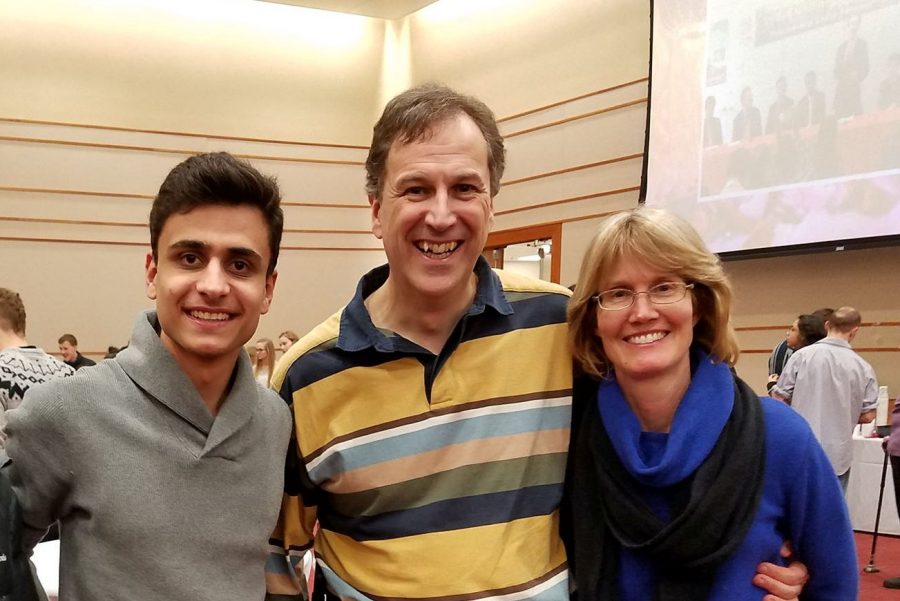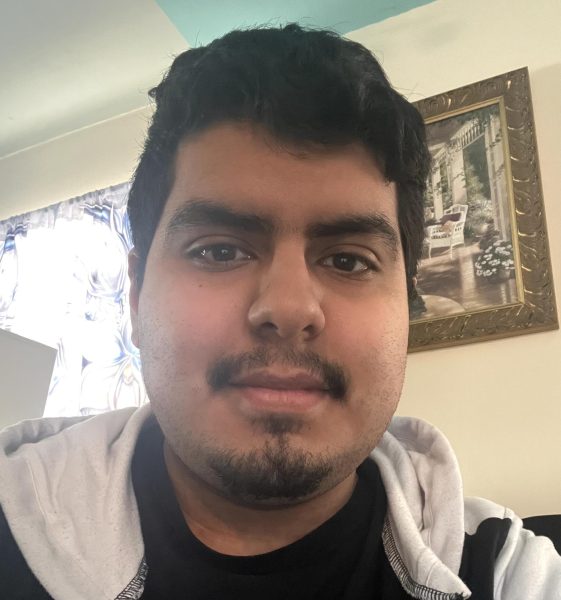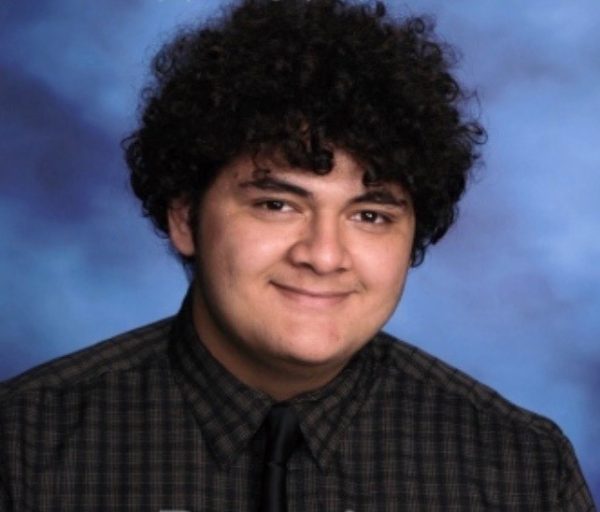Area families open their homes and hearts
Abdullah Al-Abdal shares a moment with Tom and Amy Berube, who have hosted the PNW student at their Valparaiso home for three years. Al-Abdal is the latest of 14 students the Berubes have hosted during the last eight years.
For some international students, enrolling at PNW is only part of an American education. Many choose to steep themselves in the culture by living with an American family.
Only about 36% of PNW’s 385 international students follow the university’s recommendation to live in the dorms. While the Global Engagement Office says it does not know what off-campus housing the other 245 international students live in, many want to reside with local American families.
“I chose to live with an American family because I wanted to improve my English and to learn in depth about the American culture,” said Abdullah Al-Abdali, an Iraqi who has lived with an American family in Valparaiso for three years. “Living with a family is different than living in an apartment or dorm. My American family is highly educated and fun to live with. They are supportive and helped me to be successful at school and in life in general.”
Al-Abdali said living with the family has taught him a lot about the United States.
“My American family is fun to live with because they do a lot of activities, such as playing outdoor games and traveling to different states,” he said.
The family also enjoys the company of an international student.
“Over the past eight years, we have had a total of 14 international students/visiting scholars live with us for time periods from two weeks to three years,” said Amy Berube, the mother of Al-Abdali’s American family. “They have been from Saudi Arabia, Iraq, Egypt, Pakistan, Japan and China.
“It has been very fun and rewarding to help them learn English and American culture,” she said. “In return, Tom [Berube’s husband] and I have learned a lot about other cultures. We would definitely encourage Americans to host international students because God loves all people, and everyone needs another friend.”
But, while the experience of living with an American family is appealing, it is up to individual students to find those families. PNW has no program to place them in local homes.
“I dreamed [of living] with an American family when I came to the U.S. to enhance my English and to observe traditional American life,” said Meshal Al-Yahya, a senior from Saudi Arabia. “Because there was no official information that was provided by the university, it was hard for me to find a nice family [to] host me.”
But some international students actually prefer life in the dorms.
“Despite the high cost of the housing, I want to live in dorms because it is closer to campus,” said Rahul Shah, a senior from India, who has lived in campus dorms for four years. “It is very helpful to communicate with students and it provides security, especially for international students.”
The Global Engagement Office recommends PNW’s dorms because they provide international students an opportunity to interact with native speakers in hallways or as a roommate. Plus, the dorms provide safe spaces for international students who come from countries that may have lower crime rates or different customs about strolling outdoors late at night.
“We do not coordinate homestays because we offer a great on-campus option,” said George F. Kacenga, executive director of Global Engagement. “Some students choose to live off campus, [but] GEO always promotes on-campus housing as the best option.”
International students pay up to $3,322 per semester for dorm housing. But the dorms are always available.
“We are open 24-7/365 so all of the same policies/standards that we hold during the year are continued into the summer,” said Korey West, associate director for Housing & Residential Education. “We still have duty staff, RAs, events and fully operational desks, just like we do during the academic year. We never close.”








Debbie DiStefano • Mar 15, 2020 at 5:14 pm
This is a great story! We have hosted students for 12 years and wouldn’t know how to live without our extended family. They have come to mean so much. Thank you for writing this!